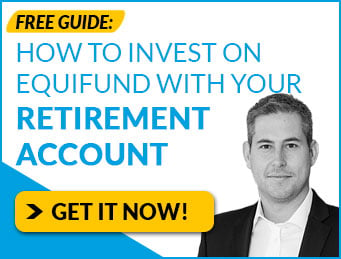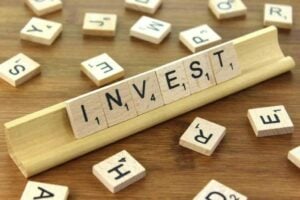When I recently asked our Equifund readers to send in their questions about Pre-IPO investing, one of the top questions asked was “How do I track the value of my Pre-IPO portfolio?”
To do this, it means we have to understand one of the most important concepts in finance…
How Assets Are Priced
Generally speaking, there are two ways to determine the value of any asset…
1) Appraisal – An “expert” examines the asset in question and assigns a price to it, based on some combination of factors deemed relevant (a model-driven pricing mechanism).
In traditional fundraising environments, the company raising money (the “Issuer”) pitches a high net worth individual or institutional investor on their deal.
The deal is usually some version of this: “I will sell you X% of my company for $Y with Z extra benefits.”
At first glance, this transaction is heavily lopsided: the seller has substantially more information about the investment than the buyer.
That’s why the buyer will typically ask for a due diligence period in order to establish a financial model that justifies the pricing of the deal.
They will also likely try to negotiate for “extras” that can provide downside protection and control mechanisms.
Eventually, final terms are negotiated and an Offering Document – also known as a Prospectus or an Offering Circular – is produced.
In Crowdfunding, these documents are the Form C for Regulation Crowdfunding offerings or Form 1-A for Regulation A+ offerings.
As an investor, it’s important to review these documents as they spell out – in legally binding detail – exactly what you’re buying.
I know it’s a time consuming task that isn’t very fun, but it’s important to know what you actually own if you’re trying to determine how much it’s worth.
For simplicity’s sake, let’s assume the Issuer is selling common stock with voting rights (which all of the Issuers listed on Equifund Crowd Funding Portal do).
These shares are priced at $1/share at a $10m valuation.
This means there are 10 million shares outstanding priced at $1 each (valuation = share price x shares outstanding)…
So how does the value of the shares change? The Issuer sells more shares at a new price!
When this happens, the appraised value of the shares you purchased also changes.
However, just because an asset has an appraised value (i.e. “valuation”) doesn’t mean there is a buyer at that price, in the quantity you wish to sell (i.e. “liquidity”).
At this point, you have what are known paper gains (aka “Internal Rate of Return” or “IRR”).
Based on IRR alone, 2020 and 2021 were – by far – the most profitable years in venture capital and private equity.
PitchBook data shows that the rolling one-year internal rate of return (IRR) for VC reached 65.5% as of Q2’21, marking the fifth quarterly increase in a row
But let’s say the Issuer IPOs and is now a publicly traded stock.
The stock will now be valued based on a new pricing mechanism…
2) Auction – The price of the asset is decided purely by supply and demand (a market-driven pricing mechanism).
You’ll hear me say this over and over again…
The true price of any asset is what someone else is willing to pay for it.
Which begs the question, how do you figure out what that is?
The most efficient way to do this is to create a market.
The job of the market is to bring potential buyers and sellers together… and instead of arbitrarily setting prices, allow prices to “float” based on supply and demand.
Every time a transaction is made (i.e. “Trading Volume”), this creates a mechanism for Price Discovery – which is the central function of a marketplace, be it a financial exchange or a local farmers market.
In these types of environments, information becomes one of the most valuable advantages any buyer/seller can have.
Why? When new information arrives, it changes both the current and future condition of the market and therefore can change the price at which both sides are willing to trade.
In the public markets, all information that is material to investors must be disclosed.
This – along with a variety of other factors – can influence the stock price as information becomes “priced in.”
Based on this information, analysts can determine if they believe a stock is overpriced or underpriced.
This appraisal of the company is known as “Book Value” – the total value of a company’s assets that shareholders of that company would receive if the company were to be liquidated.
However, as we’ve discussed before, the value of your shares is worth what the market will bear.
Closing Thoughts
For investors accustomed to public markets, tracking the value of Pre-IPO shares can feel frustrating.
But there’s a hidden potential advantage to not having to be at the mercy of a real-time stock ticker…
It means you don’t have to stress yourself out over short-term fluctuations in price!
Instead, you can focus on developing – and executing – a long-term investment strategy designed to help you meet your own personal financial goals.
Sincerely,
Jake Hoffberg – Publisher
Equifund













